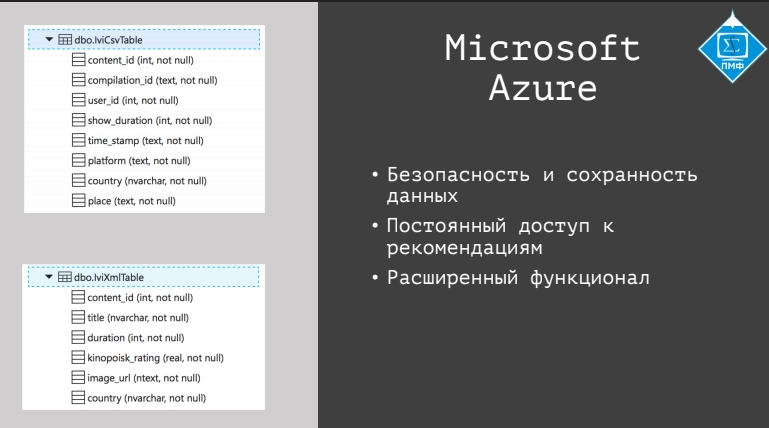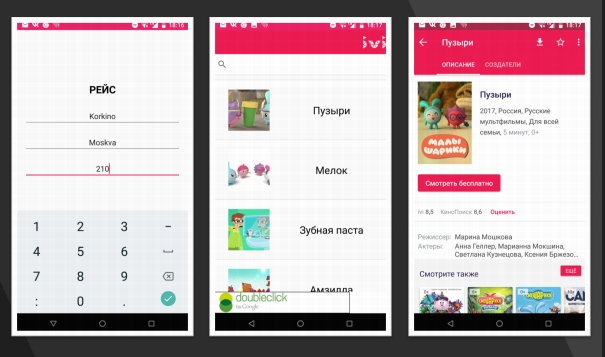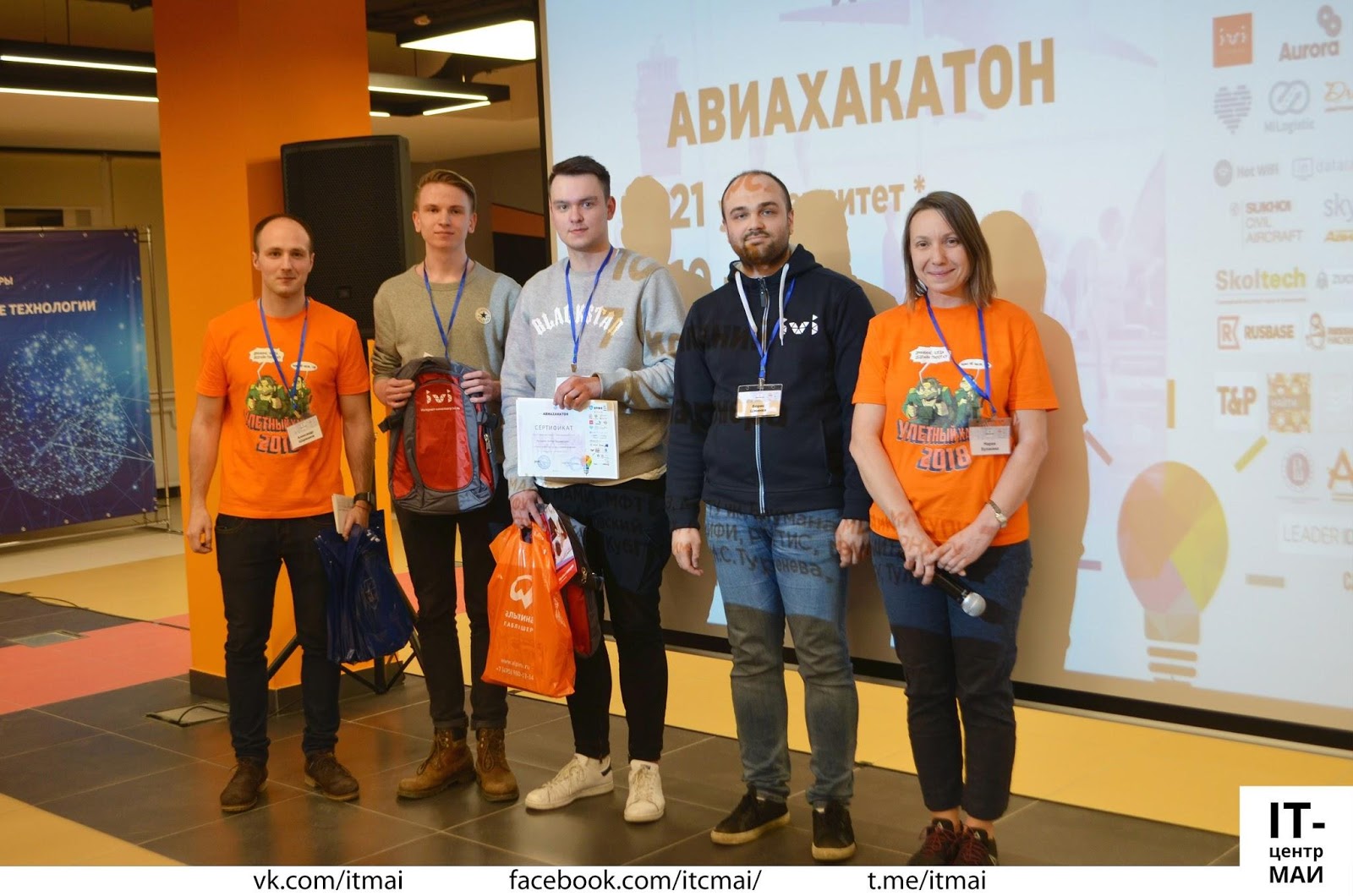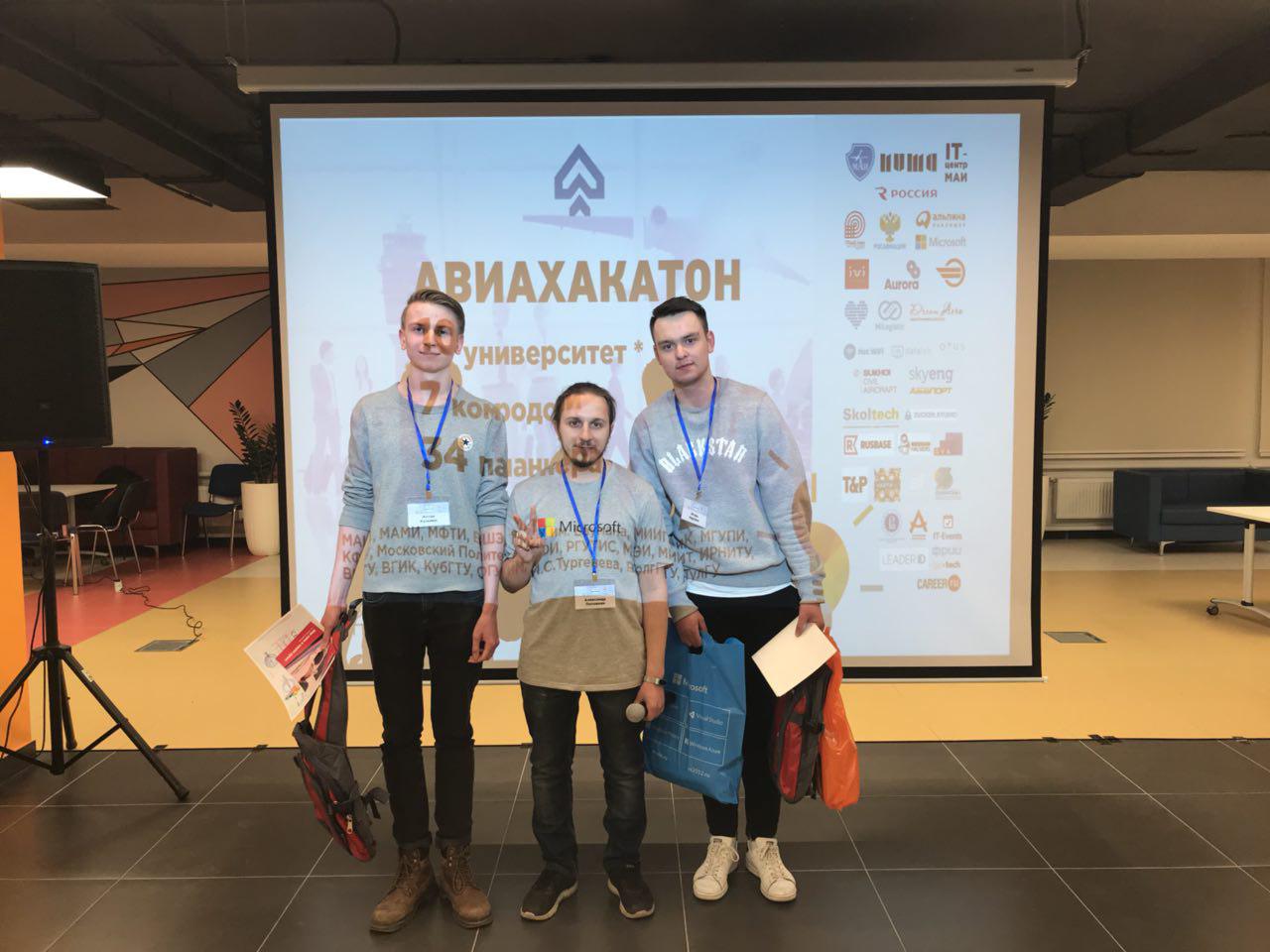Air hackathon
On April 6-8, a hackathon was organized on the territory of the Moscow Aviation Institute , organized by the MAI IT center , where tasks from IT companies and representatives of the aviation industry were presented.
The ivi online cinema partnered with the hackathon: it provided a set of data about the content, and also provided mentoring support to the teams. Final presentations were evaluated by an independent jury, which included representatives of the MAI it-center. Some details under the cut.
Three datasets became the data from ivi:
- Uploading the weekly viewing history in CSV format: viewing date and time, viewing duration and user ID (data anonymized);
- Geodata about viewing: country and city, description of video content in the form of XML (this document is received including by ivi partners selling their products based on API);
- Textual description of the content in TSV format (for recommendation systems based on natural language processing algorithms). All data is available for download in the organizers repository .
Hackathon participants were asked to create a service for entertaining passengers during air travel: for long trips, it is important to choose the right content. Also, as a base line, the participants were provided with a script for full-text search by descriptions of content (which no one used ¯ \ _ (ツ) _ / ¯ as a result).
Formally, the hackathon lasted from April 6 to April 8, but actually on Friday evening, the participants got to know each other, and on Sunday evening it was already necessary to present the projects, so the guys wrote the code all night from Saturday to Sunday, converting coffee and rolls with cabbage in the application.
Content data from ivi interested 4 out of 12 teams: the Black Rose team made a bot that responded to requests from users on Telegram; the Data Cats team, in which there were guys from the largest open community, Open Data Science , provided a tablet application with an offline part on Spark, where, in addition to content recommendations, there were sections with recommendations for educational courses and books.
The winners in the ivi nomination, as well as the absolute leaders in the total number of points, were the Level Pro team consisting of two students: Igor Cherepko and Anton Kuzmin, both from the 3rd year of undergraduate studies, faculty No. 8 “Information Technologies and Applied Mathematics” ) The guys organized the team work grammatically: Igor was engaged in visualization and the database, and Anton was an Android application and a PHP backend.
For the backend, a cloud platform was used from the event partners - Microsoft Azure . The data from ivi (XML and CSV) was uploaded to the virtual machine, on which the calculation of recommendations revolved.

The Android application was an interface where the passenger was updated with flight data - destination city and time in the air:

After that, the request flew to the backend, where the available content was sorted by popularity in the destination city (CSV data) and IMDB rating (XML data), the sorted list was returned to the application in the form of JSON. Links to ivi flew into the client application - if ivi client was installed on the device (for example, Android or iOS), then the passenger continued to view in a convenient interface.


According to the hackathon : the event was organized at a high level, thanks to this the team in less than 48 hours went from raw ideas to complete products, gained experience in using new technologies and "big data". The guys improved their teamwork skills and expanded their technology stack: for example, the data about the content views did not fit into the laptop’s RAM, which led the developers to use Microsoft’s cloud technologies. Hackathon winners will be interviewed as trainees in ivi.
Recall that at the Moscow Aviation Institute in the fall, new “ master's programs ” will start , which were prepared jointly with it companies (Mail.ru, Avito, ivi, ReadHunter, CROC, LUXOFT, etc.)
The ivi online cinema partnered with the hackathon: it provided a set of data about the content, and also provided mentoring support to the teams. Final presentations were evaluated by an independent jury, which included representatives of the MAI it-center. Some details under the cut.
Task statement
Three datasets became the data from ivi:
- Uploading the weekly viewing history in CSV format: viewing date and time, viewing duration and user ID (data anonymized);
- Geodata about viewing: country and city, description of video content in the form of XML (this document is received including by ivi partners selling their products based on API);
- Textual description of the content in TSV format (for recommendation systems based on natural language processing algorithms). All data is available for download in the organizers repository .
Hackathon participants were asked to create a service for entertaining passengers during air travel: for long trips, it is important to choose the right content. Also, as a base line, the participants were provided with a script for full-text search by descriptions of content (which no one used ¯ \ _ (ツ) _ / ¯ as a result).
Team work
Formally, the hackathon lasted from April 6 to April 8, but actually on Friday evening, the participants got to know each other, and on Sunday evening it was already necessary to present the projects, so the guys wrote the code all night from Saturday to Sunday, converting coffee and rolls with cabbage in the application.
Content data from ivi interested 4 out of 12 teams: the Black Rose team made a bot that responded to requests from users on Telegram; the Data Cats team, in which there were guys from the largest open community, Open Data Science , provided a tablet application with an offline part on Spark, where, in addition to content recommendations, there were sections with recommendations for educational courses and books.
The winners in the ivi nomination, as well as the absolute leaders in the total number of points, were the Level Pro team consisting of two students: Igor Cherepko and Anton Kuzmin, both from the 3rd year of undergraduate studies, faculty No. 8 “Information Technologies and Applied Mathematics” ) The guys organized the team work grammatically: Igor was engaged in visualization and the database, and Anton was an Android application and a PHP backend.
For the backend, a cloud platform was used from the event partners - Microsoft Azure . The data from ivi (XML and CSV) was uploaded to the virtual machine, on which the calculation of recommendations revolved.

The Android application was an interface where the passenger was updated with flight data - destination city and time in the air:

After that, the request flew to the backend, where the available content was sorted by popularity in the destination city (CSV data) and IMDB rating (XML data), the sorted list was returned to the application in the form of JSON. Links to ivi flew into the client application - if ivi client was installed on the device (for example, Android or iOS), then the passenger continued to view in a convenient interface.


Conclusion
According to the hackathon : the event was organized at a high level, thanks to this the team in less than 48 hours went from raw ideas to complete products, gained experience in using new technologies and "big data". The guys improved their teamwork skills and expanded their technology stack: for example, the data about the content views did not fit into the laptop’s RAM, which led the developers to use Microsoft’s cloud technologies. Hackathon winners will be interviewed as trainees in ivi.
Recall that at the Moscow Aviation Institute in the fall, new “ master's programs ” will start , which were prepared jointly with it companies (Mail.ru, Avito, ivi, ReadHunter, CROC, LUXOFT, etc.)
